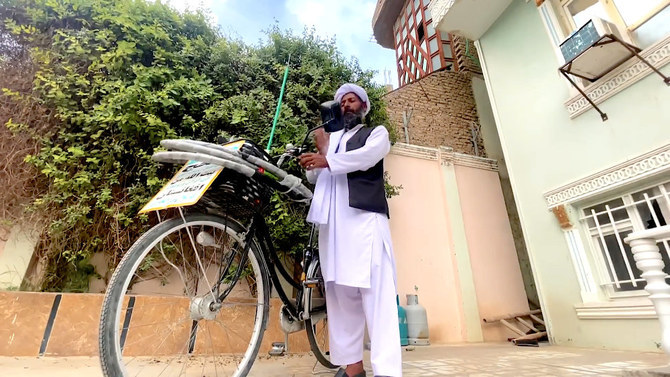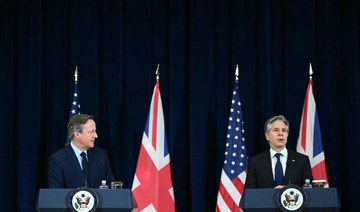KABUL: A pilgrim from southeastern Afghanistan, who became a social media sensation when he embarked on a bicycle journey to Makkah last month, has reached Saudi Arabia, Afghan authorities said on Wednesday, after his expedition took a series of unexpected turns, including a sponsored flight.
Noor Mohammad departed from his home in Layeq village, in the Qarabagh district of Ghazni province in early May, planning to cover more than 6,000 kilometers to reach the holy city of Islam by July and perform Hajj.
As he cycled through Afghanistan, a Taliban scholar offered him assistance in getting a plane ticket, but the 48-year-old refused, wanting to go the extra mile in fulfilling the sacred obligation.
Little did he know that soon the help would be needed when after three weeks he got stranded in Iran, trying to obtain an Iraqi visa in the border city of Khorramshahr.
“My Afghan friends promised to get me Iraq’s visa there,” Mohammad told Arab News, as he described his further attempts to get a Kuwaiti visa instead. Again, to no avail.
That was when he decided to reach out to the scholar.
“I had no other way. I contacted Shaikh Hammasi through WhatsApp,” he said. “He introduced me to an Afghan businessman who helped with the stay in Iran and return back to Kabul.”

A screengrab from a May 8, 2022, video shows Noor Mohammad departing for Makkah by bike from Layeq village, in the Qarabagh district of Ghazni, Afghanistan. (Social media)
In Kabul, he was immediately accepted for a Hajj preparation course, where officials took care of his departure. His flight was reportedly covered by acting Interior Minister Serajuddin Haqqani, a close aide of Anas Haqqani — the minister’s brother and senior Taliban leader — told Arab News.
“The ministry of Hajj processed my passport on an urgent basis,” Mohammad said, just days before leaving for Saudi Arabia.
He flew from Kabul on Tuesday, after all his travel documents were processed.
“His name was put on the first flight after that,” Mawlawi Israrulhaq, an official at the Ministry of Hajj and Religious Affairs, said. “He traveled to Jeddah from where he will join other Afghan Hajjis in Makkah.”
Mohammad was preparing for his flight days after a deadly earthquake wreaked havoc in eastern Afghanistan, killing an estimated 1,150 people last week.
He has been praying for the victims and said he would remember them too when he reached Makkah.
“As soon as I get to Makkah, I will pray to Allah to make it easy for the families who lost loved ones and their houses,” he added. “I am going to ask him to solve all problems of Afghans.”























